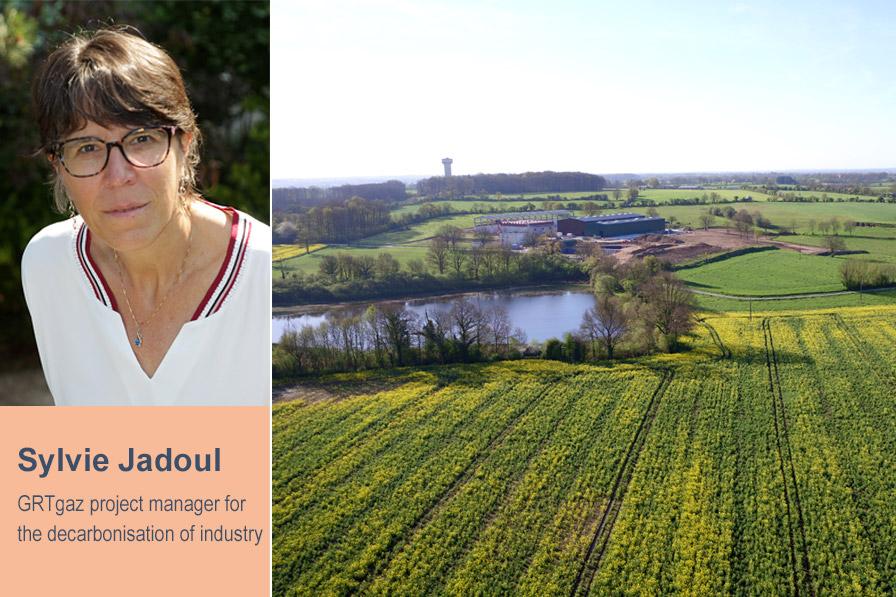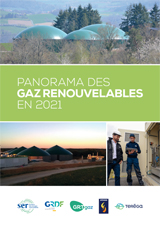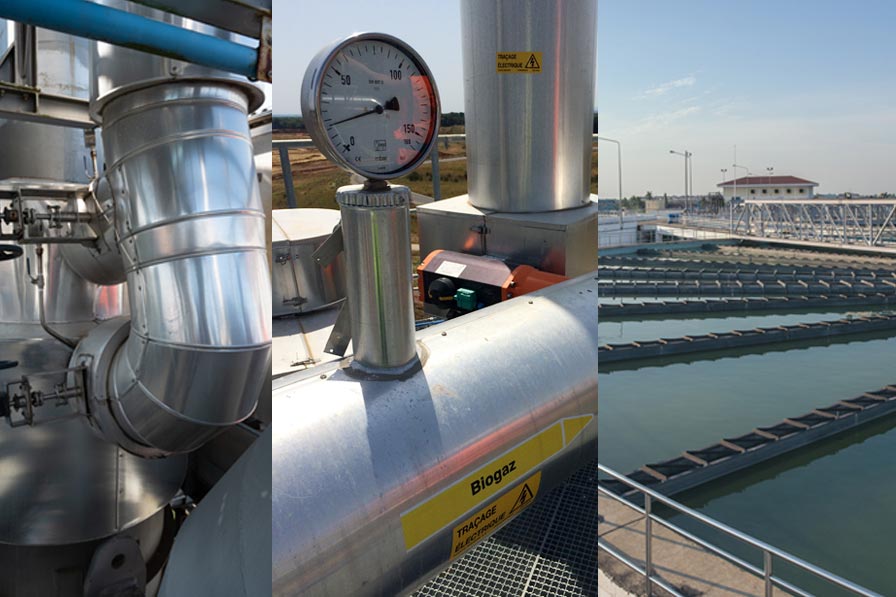Renewable gases: a tool for decarbonising industries

Sylvie Jadoul, GRTgaz project manager for the decarbonisation of industry, explains how renewable gases can help this process in the very short term.
To what extent are industries obliged to reduce their CO2 emissions?
There is a European and French regulatory framework that sets ambitious greenhouse gas reduction targets for industrial companies. These goals are not the same for all industries, but they apply across the board. The target is for carbon neutrality by 2050. The CO2 quota system is entering a new phase that reduces free quotas even further under conditions where the price per tonne of carbon is increasing. In tandem, there are also financial assistance measures to support efforts aimed at energy efficiency and decarbonisation.
What role do renewable gases play in decarbonisation?
Decarbonising an activity entails significant investments (modifying the process and sometimes the materials, certifying the products derived from new measures, etc.). This is a time-consuming process and not all industries have the resources to do it right away. And it’s here that gas makes all the difference. Thanks to “green” gases, industrial companies whose sites operate on natural gas can decarbonise their operations as of now, without modifying their processes. Industries purchase green gas with guarantees of origin attesting to the renewable source of the gas injected into the network. This system allows industrial companies to finance the development of renewable energies and to reduce their environmental footprint, while implementing their energy transition at their own pace.
"As gas transporters, we act in an advisory capacity. We want our customers to access solutions that meet their needs and allow them to move forward. To do this, we bring all the solution providers together under one umbrella (manufacturers, gas stakeholders, etc.)."Sylvie Jadoul
GRTgaz project manager for the decarbonisation of industry
How does GRTgaz support these industries?
As gas transporters, we act in an advisory capacity. We want our customers to access solutions that meet their needs and allow them to move forward. To do this, we bring all the solution providers together under one umbrella (manufacturers, gas stakeholders, etc.). We also study the integration of certain gases and the impact that these have on their processes.
Next, we train employees and customers. We ensure that everyone has up-to-date information about the regulations in force and the decarbonisation options that gas offers, whether this is biomethane or solutions under development, such as hydrogen. On 15 June, we are gathering our customers for an online event to explain the roles that green gases and our network play in decarbonisation. In a series of themed sessions, we will then focus on the sector-by-sector issues, the question of “green” certificates and their implementation, etc.
"Rolling out natural gas replacements" is the main goal of GRTgaz’s business strategy. How does this play a part in the energy transition?
Green gases are seeing exponential production. However, their current level of availability does not yet meet all uses. We have to keep promoting natural gas as the first step in the decarbonisation process for industries that operate on fuel oil or coal. Gas is less polluting and generates less CO2. For transport, it reduces greenhouse gas emissions by 15-20% compared with diesel, and 80% in the case of bioNGV. It is no coincidence that the Paris Public Transport Operator (RATP) will be fuelling half of its bus fleet with BioNGV by 2025 to transport 500,000 passengers daily.
Publications


Contenus utiles

Renewable and low-carbon gases
